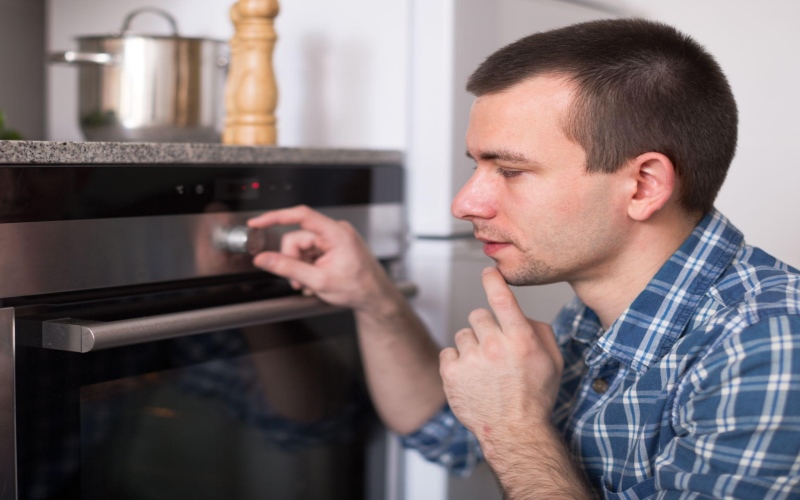Smelling gas in your home or workplace can be unsettling, and for good reason. Natural gas and LPG (liquefied petroleum gas) leaks are serious safety concerns that require immediate attention. Even though gas is a convenient energy source for heating, cooking, and powering appliances, it can be hazardous if not handled properly. This guide will walk you through the steps to take if you ever smell gas, ensuring you act quickly and safely.
Recognise the Signs of a Gas Leak
The first step in addressing a potential gas problem is recognising the signs. Most gas used in homes and businesses is odourised, meaning a distinctive, rotten-egg smell is added to alert people of leaks. If you notice this smell, it’s essential to take it seriously.
Other signs of a gas leak include:
- A hissing or whistling sound near a gas appliance or pipe.
- Dead or discoloured vegetation near outdoor gas lines.
- A sudden spike in your gas bill.
- Bubbles forming in water or puddles near gas lines.
- Feeling lightheaded, dizzy, or nauseous when indoors.
If you notice any of these warning signs, it’s time to take action.
What to Do Immediately
- Don’t Ignore It: Gas leaks won’t fix themselves, and ignoring the problem can lead to serious consequences like fires or explosions. Always treat the situation as urgent.
- Turn Off Appliances: If it’s safe to do so, turn off gas appliances, stoves, or heaters to minimise the leak’s source. Avoid trying to identify the exact point of the leak if it means putting yourself in harm’s way.
- Don’t Create Sparks: Gas is highly flammable, so any spark can ignite it. Avoid switching on lights, using electrical appliances, or even using your phone indoors if you suspect a gas leak.
- Ventilate the Area: Open all windows and doors to allow fresh air to circulate. This will help disperse the gas and reduce the risk of accumulation, which could ignite.
- Turn Off the Gas Supply: Locate your gas meter and turn off the main gas valve. This is usually a lever or dial that you can turn to shut off the gas flow completely. If you’re unsure how to do this, it’s a good idea to learn before an emergency happens.
Evacuate Immediately
If the smell of gas persists or seems strong, evacuate everyone from the premises, including pets. Move to a safe location away from the property, such as the other side of the street, and avoid staying close to any gas lines or outdoor meters.
Once you’re safely away, call emergency services or your gas provider to report the leak. In Brisbane, you can contact your gas provider or emergency services for assistance. Make the call from outside the property to avoid any potential sparks indoors.
Who to Call
Once you’ve evacuated, call professionals to handle the issue. In Brisbane, reliable providers like Plus Gas can assist in detecting and fixing the issue. Do not attempt to fix a gas leak yourself—this is a job for trained and licensed experts who know how to handle gas safely.
If you’ve been using a gas bottle and suspect it might be the cause of the issue, mention this to the professionals. Sometimes, a gas bottle leak can occur if the bottle isn’t properly secured or has a damaged valve. Plus Gas can help you inspect and address this issue.
Preventing Future Gas Leaks
Preventing gas leaks starts with regular maintenance and safe practices. Here are a few tips to keep your home or workplace safe:
- Inspect Your Appliances: Regularly check your gas-powered appliances for wear and tear. If you notice any damage to hoses, fittings, or burners, have them repaired or replaced by a professional.
- Use Gas Detectors: Installing gas detectors in your home can provide an added layer of protection. These devices sound an alarm if gas levels become unsafe, giving you time to act.
- Keep Gas Bottles Secure: Ensure your gas bottles are stored upright and in a well-ventilated area. Always check the valve and connections for any signs of damage or wear.
- Schedule Professional Inspections: Have your gas systems inspected by a licensed technician annually. This ensures everything is in good working condition and reduces the risk of leaks.
- Educate Your Family: Make sure everyone knows what to do if they smell gas. Practice evacuation drills and ensure everyone knows how to turn off the gas supply.
Why Gas Safety Matters
Taking gas safety seriously protects your home, family, and neighbours. In addition to preventing fires or explosions, addressing gas leaks promptly can also protect your health. Prolonged exposure to leaking gas can lead to carbon monoxide poisoning, which is life-threatening.
Remember, it’s always better to be overly cautious than to underestimate the risk. Gas leaks are not a “wait and see” situation; they require immediate and decisive action. By following the steps outlined above, you can ensure your safety and minimise the risks of gas leaks.
If you’re in Brisbane and need assistance, Plus Gas is here to help. Whether it’s inspecting for a potential gas bottle leak or addressing larger gas safety concerns, they have the expertise to get the job done right. Stay safe, stay informed, and never hesitate to act when it comes to gas safety.
